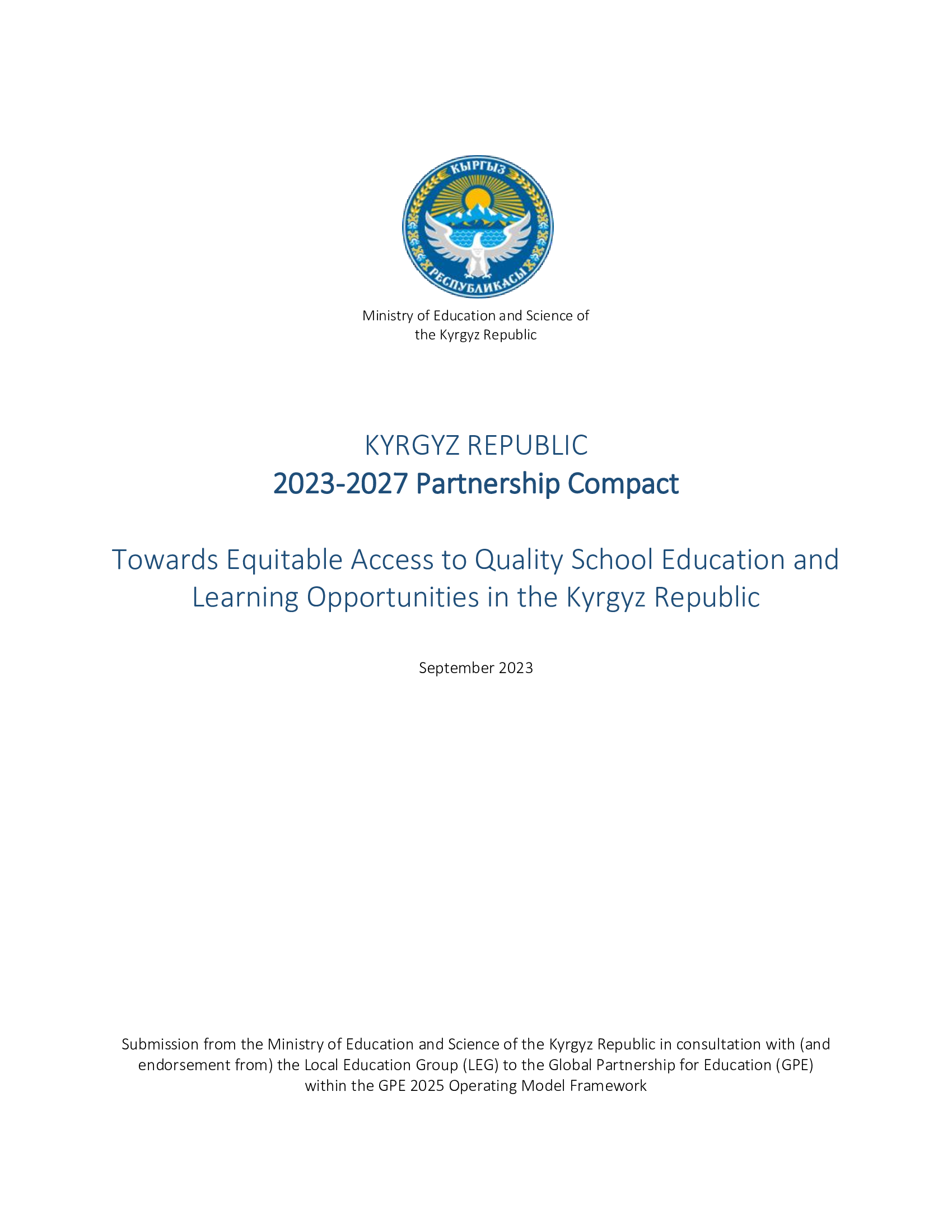Kyrgyz Republic’s rapid population growth over the past decade, coupled with lack of investment in improving school infrastructure, has led to overcrowded classrooms.
Additionally, competency-based curriculum was introduced at the primary level in 2010, secondary in 2014 and upper secondary in 2017, but a lack of focus and consistency of the education content across levels calls for further revisions.
The government is working with GPE and other partners to achieve equitable access to quality school education and learning opportunities. The Kyrgyz Republic’s Partnership Compact prioritizes updating the curriculum, standards, and teaching and learning materials to enhance learning quality.
Building infrastructure with emphasis on gender-sensitive and inclusive WASH facilities will help improve access to education, especially for marginalized students.
These measures are complemented by ongoing interventions to increase preschool coverage for school readiness, strengthen teacher professional development, roll-out international learning assessments, and invest in the computerization and connectivity of schools.
Improved system governance and financing will support large-scale and sustainable change.


